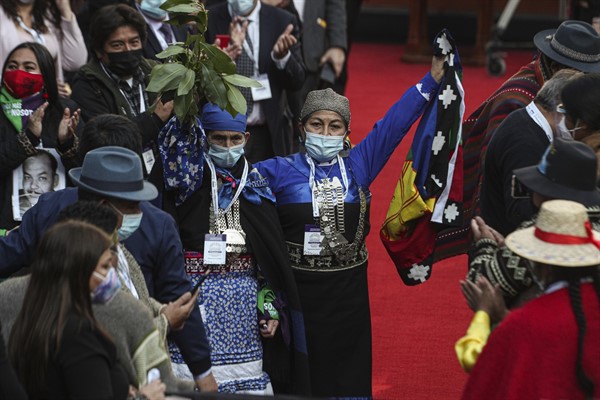In June, Chile’s Constitutional Convention was seated, culminating a process that began with spontaneous protests in late 2019 and soon crystallized into demands for an overhaul to the country’s social model and rewriting Chile’s constitution, which dates back to the dictatorship of Augusto Pinochet.
As central protagonists in the protest movement that led to the successful constitutional referendum in October 2020, Chile’s Indigenous peoples have sought to make sure that the new constitution drafted by the convention includes formal recognition of their status, as well as a designation of Chile as a plurinational state. Both demands grow out of the deep and complex relationship between the Chilean state and the country’s Indigenous peoples.
That relationship has been historically marked by mistrust, given the state’s failure to comply with past agreements and promises made to Indigenous peoples as well as a lack of mutual understanding between them. The tendency of Chilean governments in recent decades to frame public policy with regard to Indigenous peoples as exclusively issues of poverty and development has contributed to this mistrust. Moreover, state interaction with Indigenous peoples has also taken place through the prism of public security, rather than political dialogue with respect for and recognition of Indigenous peoples’ collective human rights, which have been recognized in international treaties and other instruments ratified by Chile. The most paradigmatic evidence of this omission is the absence of any constitutional recognition of Indigenous peoples and their collective rights.

